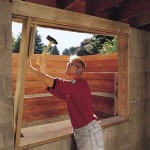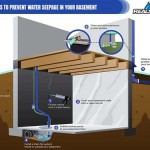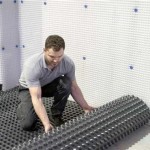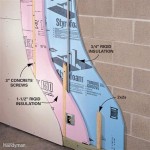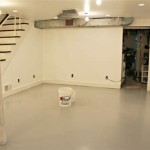White Powdery Substance on Basement Floor: What It Is and What to Do
Discovering a white, powdery substance on your basement floor can be alarming. Several possible causes could be behind this, ranging from harmless to potentially hazardous. Understanding the nature of the substance is crucial to determine the appropriate course of action.
1. Efflorescence
Efflorescence is a common cause of white powder on basement floors. It's formed when moisture evaporates from the concrete or masonry walls, leaving behind soluble salts. These salts crystallize on the surface as a white, powdery residue.
2. Mold or Mildew
Mold and mildew thrive in damp environments, such as basements. They can manifest as a white, powdery substance or form dark, fuzzy patches on surfaces.
3. Detergents or Cleaning Products
Residual powder from detergents or cleaning products can also appear as a white powder on the floor. This is especially common if the basement has been recently cleaned.
4. Calcium Carbonate
In areas with hard water, calcium carbonate deposits can form as a white, crumbly substance. This can occur when hard water evaporates from surfaces.
5. Asbestos
In older homes, asbestos may be present in building materials, including the basement floor. Disturbing asbestos-containing materials can release harmful fibers into the air.
How to Determine the Cause To determine the cause of the white powder on your basement floor, consider the following factors:
- Appearance: Efflorescence typically forms a white, crystalline powder, while mold or mildew may have a fuzzy texture.
- Location: Efflorescence often occurs near moisture sources, while mold or mildew may be found in damp areas with poor ventilation.
- Age of the Building: Older homes are more likely to have asbestos-containing materials.
- Water Usage: Hard water can contribute to calcium carbonate deposits, while excessive moisture can promote mold growth.
Safety Precautions If you suspect the white powder may be asbestos, do not disturb it. Asbestos fibers can be hazardous to health if inhaled. Contact a qualified professional for testing and removal.
If the substance is not asbestos, it's generally safe to handle. However, it's recommended to wear gloves and a mask to prevent irritation from dust or mold spores.
Cleaning and Remediation To clean efflorescence, use a solution of equal parts white vinegar and water. Apply the solution to the affected area and let it sit for a few hours before wiping it away. For mold or mildew, use a solution of 1 cup of bleach per gallon of water. Ventilate the basement during and after cleaning.
To prevent future occurrences of white powder, address the underlying moisture problem. Consider sealing cracks or leaks in the walls, installing a dehumidifier, or improving ventilation.
If you're unsure about the cause or the appropriate remediation method, consult with a professional contractor or home inspector.

Efflorescence What Is That White Powder On My Foundation And Brick

How To Identify That White Stuff On Your Concrete Wall Kryton

Basement What Is This White Powder On My Foundation Home Improvement Stack Exchange

Identifing Efflorescence And Mold Growth Environix

How To Get Rid Of And Prevent Mold Growth On Concrete Environix

Ask The Builder Fluffy Salt Crystals Are Not Mold Seattle Times

How To Get Rid Of And Prevent Mold Growth On Concrete Environix

Basement What Is This White Powder On My Foundation Home Improvement Stack Exchange

What Is The White Powder On Basement Walls News And Events For Advanced Systems

I Found Mold On The Concrete Of My Basement What Should Do
See Also

